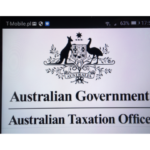Big Wig Buys His Way Out of Tax Crimes, While ATO Whistleblower Is Criminally Prosecuted for Exposing Them

The close to a fortnight-old scandal relating to Mineral Resources boss Chris Ellison is continuing to develop, following the Australian Financial Review having run an 18 October article exposing one of the nation’s richest people as having established a series of offshore companies on the tax-free British Virgin Islands in the early 2000s, in order to avoid paying tax to the Australian Taxation Office.
MinRes managing director Ellison came to Australia from New Zealand at the age of 19 and became one of our wealthiest via three mining sector businesses that dealt in pipelines, crushers and other mining equipment, and merged to become Mineral Resources, an iron ore and lithium giant, when the company was floated on the Australian Stock Exchange in July 2006 and it’s now worth $9 billion.
One of the companies that Ellison incorporated in the British Virgin Islands was Far East Equipment Holdings in 2003. This company sold second-hand mining equipment to MinRes at inflated prices, with the profits left undeclared to the ATO.
The mining company then claimed depreciation on its tax returns and Ellison and four other MinRes executives could spend these profits using Visa Gold credit cards. And the latest developments in the Ellison tax avoidance case involves questions as to whether he will be kept on as MinRes managing director.
But the real scandal here is that a wealthy mining magnate was able to send in a Sydney accountant to cut a deal with the ATO at a point where he felt he might be sprung. And the arrangement that was struck involved an exchange of information and repayment of debt owed at a heavy discount, which guaranteed that he and his other tax avoidant colleagues would walk away free and avoid criminal prosecution for tax evasion offences.
Smaller business interests
Whistleblower Richard Boyle was no longer in the employment of the tax office in Adelaide at the time that Ellison acquired the services of Sydney tax accountant Christopher Batten to approach the ATO in December 2019, but he was facing 66 criminal offences that had been laid against his name for exposing wrongdoing to the press on the part of ATO management in May 2018.
The tax office issue that Boyle shone a light on was that in mid-2017 management had commenced applying a garnishee practice at an earlier point in time than official protocol allowed for, with the aim of improving figures for the end of financial year. This saw ATO agents dipping into the bank accounts of small businesses without notice to secure debts at an earlier point than stipulated.
South Australian Supreme Court Justice David Lovell explained in his 19 June 2024 findings into the appeal against the earlier ruling of the SA District Court that he considered Boyle’s “conduct in disclosing the information attracted an immunity from criminal prosecution under the” Public Interest Disclosure Act 2013 (Cth) (the PID Act).
However, the Australian state is continuing to prosecute Boyle, now over 24 criminal offences, as the number was reduced in mid-2020. And the actions he is being prosecuted in regard to are the preparatory acts he took in gathering tax office information to prove his public interest disclosure, which he first lodged with ATO management on 12 October 2017.
So, it would seem that unlike the avoidance of criminal charges and the reduction of debt that rich mining magnates, like Ellison, are afforded by the tax office, such provisions won’t be extended to Boyle, who spoke out against the unlawful withdrawal of money from small business accounts by the tax office, which once exposed led the ATO to eradicate the practice.
Paying off a criminal investigation
AFR journalist Neil Chenoweth explains that the ATO first contacted Ellison in regard to his personal tax returns “spanning a number of years” in August 2007, which was the year after MinRes had been floated and a time when the mining mogul was considering rearranging his offshore businesses and he decided not to tell the tax office about the arrangement with the four execs and the credit cards.
Chenoweth further asserts that it was the concern that the tax office may become aware of the offshore entities and that he’d lied about them that led Ellison to hire an accountant to facilitate a self-disclosure deal.
Voluntary disclosure to the ATO can result in reductions on administrative penalties and interest charges relating to outstanding debt.
Section 284-225 of schedule 1 of the Tax Administration Act 1953 (Cth) outlines that a self-disclosed debt to the ATO can attract up to an 80 percent reduction in penalties.
Initial estimates on the undeclared income put it at around $7.5 million, and Ellison and the four other execs were concerned they might have to pay up to $17 million, including tax and penalties, with the largest portion being made up of interest. And while these initial calculations started to grow, if the deal was struck, the base would be reduced by 80 percent and millions would be saved.
And Ellison had just one condition prior to cutting the deal and this was that the ATO should never tell the Australian Federal Police or the Australian Securities and Investment Commission about it.
The grass is always greener at the high end of town
The concept that the Australian Taxation Office allows taxpayers who have been mistaken with their accounting in the past to be granted discounts on outstanding debts sounds like a reasonable policy, especially when on the flipside, the nation has recently had the social security office demanding false debts be paid by former welfare recipients to the point that some committed suicide.
However, the understanding that a billionaire, who’s undertaken some serious tax avoidance to the point of setting up offshore companies in tax-free zones and then having neglected to confess the first time the ATO asked questions, was subsequently able to cut a deal with the government agency and get off lightly when paying it back, sounds rather like the ATO turns a blind eye to rich crooks.
Boyle, on the other hand, is facing up to 50 years inside for calling out the tax office on its dipping into the accounts of small businesses that were obviously struggling at an earlier point than the tax office had considered reasonable when developing its protocols. And when he went to his superiors with a confession about malpractice, he was advised to go away and forget about it.
The latest travesty involved in the Boyle case is that attorney general Mark Dreyfus won’t drop the prosecution, even though he has the power to and the whistleblower is being prosecuted for preparatory acts involved in blowing the whistle, and the AG is further considering whether to provide criminal immunity to preparatory acts in his proposed upcoming PID Act overhaul.
The ATO whistleblower spoke out not to his own advantage but rather to stop a government agency infringing upon taxpayers rights and finances and for this sacrifice, which resulted in the ending of the dodgy garnishee practice, Boyle is instead being made to stand trial over taking some photos of taxpayer information and loading them onto an email account that was never accessed.
When considering the actions of the Australian government and its agencies, like the ATO, many would believe the agency be more concerned about a major tax avoidance ring, than an Australian Public Service employee speaking up about some departmental wrongdoing and trying to ensure that the rights of regular Australians were preserved.
But what the pursuit of whistleblowers Boyle, David McBride, Witness K and Bernard Collaery have taught the Australian public over the last half decade is, if nothing else, the Australian government fears truthful public service employees who speak out against corruption, more than it fears any other domestic threat.







